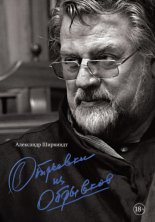—мерть на Ќиле / Death on the Nile ристи јгата

СWhat do you mean?Т
СI mean that all is not the gold that glitters Ц I mean that though this lady is rich and beautiful and beloved, there is all the same something that is not right. And I know something else.Т
СYes?Т
СI know,Т said Poirot, frowning, Сthat somewhere, at some time, I have heard that voice before Ц the voice of Monsieur Doyle Ц and I wish I could remember where.Т
But Rosalie was not listening. She had stopped dead. With the point of her sunshade she was tracing patterns in the loose sand. Suddenly she broke out fiercely:
СIТm odious. IТm quite odious. IТm just a beast through and through. IТd like to tear the clothes off her back and stamp on her lovely, arrogant, self-confident face. IТm just a jealous cat Ц but thatТs what I feel like. SheТs so horribly successful and poised and assured.Т
Hercule Poirot looked a little astonished by the outburst. He took her by the arm and gave her a friendly little shake.
СTenez Ц you will feel better for having said that!Т
СI just hate her! IТve never hated anyone so much at first sight.Т
СMagnificent!Т
Rosalie looked at him doubtfully. Then her mouth twitched and she laughed.
СBien,Т said Poirot, and laughed too.
They proceeded amicably back to the hotel.
СI must find Mother,Т said Rosalie, as they came into the cool dim hall.
Poirot passed out on the other side on to the terrace overlooking the Nile. Here were little tables set for tea, but it was early still. He stood for a few moments looking down on to the river, then strolled down through the gardens.
Some people were playing tennis in the hot sun. He paused to watch them for a while, then went on down the steep path. It was there, sitting on a bench overlooking the Nile, that he came upon the girl of Chez Ma Tante. He recognized her at once. Her face, as he had seen it that night, was securely etched upon his memory. The expression on it now was very different. She was paler, thinner, and there were lines that told of a great weariness and misery of spirit.
He drew back a little. She had not seen him, and he watched her for a while without her suspecting his presence. Her small foot tapped impatiently on the ground. Her eyes, dark with a kind of smouldering fire, had a queer kind of suffering dark triumph in them. She was looking out across the Nile where the white-sailed boats glided up and down the river.
A face Ц and a voice. He remembered them both. This girlТs face and the voice he had heard just now, the voice of a newly made bridegroomЕ
And even as he stood there considering the unconscious girl, the next scene in the drama was played.
Voices sounded above. The girl on the seat started to her feet. Linnet Doyle and her husband came down the path. LinnetТs voice was happy and confident. The look of strain and tenseness of muscle had quite disappeared, Linnet was happy.
The girl who was standing there took a step or two forward. The other two stopped dead.
СHallo, Linnet,Т said Jacqueline de Bellefort. СSo here you are! We never seem to stop running into each other. Hallo, Simon, how are you?Т
Linnet Doyle had shrunk back against the rock with a little cry. Simon DoyleТs good-looking face was suddenly convulsed with rage. He moved forward as though he would have liked to strike the slim girlish figure.
With a quick birdlike turn of her head she signalled her realization of a strangerТs presence. Simon turned his head and noticed Poirot.
He said awkwardly:
СHullo, Jacqueline; we didnТt expect to see you here.Т
The words were unconvincing in the extreme. The girl flashed white teeth at them.
СQuite a surprise?Т she asked. Then, with a little nod, she walked up the path.
Poirot moved delicately in the opposite direction. As he went, he heard Linnet Doyle say:
СSimon Ц for GodТs sake Ц Simon Ц what can we do?Т
Chapter 2
Dinner was over. The terrace outside the Cataract Hotel was softly lit. Most of the guests staying at the hotel were there sitting at little tables.
Simon and Linnet Doyle came out, a tall distinguished looking grey-haired man with a keen clean-shaven American face beside them. As the little group hesitated for a moment in the doorway, Tim Allerton rose from his chair nearby and came forward.
СYou donТt remember me, IТm sure,Т he said pleasantly to Linnet, Сbut IТm Joanna SouthwoodТs cousin.Т
СOf course Ц how stupid of me. YouТre Tim Allerton. This is my husbandТ-a faint tremor in the voice, pride, shyness?†Ц Сand this is my American trustee, Mr Pennington.Т
Tim said:
СYou must meet my mother.Т
A few minutes later they were sitting together in a party Ц Linnet in the corner, Tim and Pennington each side of her, both talking to her, vying for her attention. Mrs Allerton talked to Simon Doyle.
The swing doors revolved. A sudden tension came into the beautiful upright figure sitting in the corner between the two men. Then it relaxed as a small man came out and walked across the terrace.
Mrs Allerton said:
СYouТre not the only celebrity here, my dear. That funny little man is Hercule Poirot.Т
She had spoken lightly, just out of instinctive social tact to bridge an awkward pause, but Linnet seemed struck by the information.
СHercule Poirot? Of course Ц IТve heard of himЕТ
She seemed to sink into a fit of abstraction. The two men on either side of her were momentarily at a loss.
Poirot had strolled across to the edge of the terrace, but his attention was immediately solicited.
СSit down, Monsieur Poirot. What a lovely night!Т
He obeyed.
СMais oui, Madame, it is indeed beautiful.Т
He smiled politely at Mrs Otterbourne. What draperies of black ninon and that ridiculous turban effect! Mrs Otterbourne went on in her high complaining voice:
СQuite a lot of notabilities here now, arenТt there? I expect we shall see a paragraph about it in the papers soon. Society beauties, famous novelists-Т
She paused with a slight mock-modest laugh.
Poirot felt, rather than saw, the sulky frowning girl opposite him flinch and set her mouth in a sulkier line than before.
СYou have a novel on the way at present, Madame?Т he inquired.
Mrs Otterbourne gave her little self-conscious laugh again.
СIТm being dreadfully lazy. I really must set to. My public is getting terribly impatient Ц and my publisher, poor man! Appeals by every post! Even cables!Т
Again he felt the girl shift in the darkness.
СI donТt mind telling you, Monsieur Poirot, I am partly here for local colour. Snow on the DesertТs Face Ц that is the h2 of my new book. Powerful Ц suggestive. Snow Ц on the desert Ц melted in the first flaming breath of passion.Т
Rosalie got up, muttering something, and moved away down into the dark garden.
СOne must be em,Т went on Mrs Otterbourne, wagging the turban emphatically. Сem meat Ц that is what my books are. Libraries may ban them Ц no matter! I speak the truth. Sex Ц ah! Monsieur Poirot Ц why is everyone so afraid of sex? The pivot of the universe! You have read my books?Т
СAlas, Madame! You comprehend, I do not read many novels. My work-Т
Mrs Otterbourne said firmly:
СI must give you a copy of Under the Fig Tree. I think you will find it significant. It is outspoken Ц but it is real!Т
СThat is most kind of you, Madame. I will read it with pleasure.Т
Mrs Otterbourne was silent a minute or two. She fidgeted with a long chain of beads that was wound twice round her neck. She looked swiftly from side to side.
СPerhaps Ц IТll just slip up and get it for you now.Т
СOh, Madame, pray do not trouble yourself. Later-Т
СNo, no. ItТs no trouble.Т She rose. СIТd like to show you-Т
СWhat is it, Mother?Т
Rosalie was suddenly at her side.
СNothing, dear. I was just going up to get a book for Monsieur Poirot.Т
СThe Fig Tree? IТll get it.Т
СYou donТt know where it is, dear. IТll go.Т
СYes, I do.Т
The girl went swiftly across the terrace and into the hotel.
СLet me congratulate you, Madame, on a very lovely daughter,Т said Poirot, with a bow.
СRosalie? Yes, yes Ц she is good looking. But sheТs very hard, Monsieur Poirot. And no sympathy with illness. She always thinks she knows best. She imagines she knows more about my health than I do myself-Т
Poirot signalled to a passing waiter.
СA liqueur, Madame? A chartreuse? A crme de menthe?Т
Mrs Otterbourne shook her head vigorously.
СNo, no. I am practically a teetotaller. You may have noticed I never drink anything but water Ц or perhaps lemonade. I cannot bear the taste of spirits.Т
СThen may I order you a lemon squash, Madame?Т
He gave the order Ц one lemon squash and one benedictine.
The swing door revolved. Rosalie passed through and came towards them, a book in her hand.
СHere you are,Т she said. Her voice was quite expressionless Ц almost remarkably so.
СMonsieur Poirot has just ordered me a lemon squash,Т said her mother.
СAnd you, Mademoiselle, what will you take?Т
СNothing.Т She added, suddenly conscious of the curtness: СNothing, thank you.Т
Poirot took the volume which Mrs Otterbourne held out to him. It still bore its original jacket, a gaily coloured affair representing a lady with smartly shingled hair and scarlet fingernails sitting on a tiger skin in the traditional costume of Eve. Above her was a tree with the leaves of an oak, bearing large and improbably coloured apples.
It was enh2d Under the Fig Tree, by Salome Otterbourne. On the inside was a publisherТs blurb. It spoke enthusiastically of the superb courage and realism of this study of a modern womanТs love life. Fearless, unconventional, realistic were the adjectives used.
Poirot bowed and murmured:
СI am honoured, Madame.Т
As he raised his head, his eyes met those of the authoressТs daughter. Almost involuntarily he made a little movement. He was astonished and grieved at the eloquent pain they revealed.
It was at that moment that the drinks arrived and created a welcome diversion.
Poirot lifted his glass gallantly.
СA votre sant, Madame Ц Mademoiselle.Т
Mrs Otterbourne, sipping her lemonade, murmured:
СSo refreshing Ц delicious.Т
Silence fell on the three of them. They looked down to the shining black rocks in the Nile. There was something fantastic about them in the moonlight. They were like vast prehistoric monsters lying half out of the water. A little breeze came up suddenly and as suddenly died away. There was a feeling in the air of hush Ц of expectancy.
Hercule Poirot brought his gaze to the terrace and its occupants. Was he wrong, or was there the same hush of expectancy there? It was like a moment on the stage when one is waiting for the entrance of the leading lady.
And just at that moment the swing doors began to revolve once more. This time it seemed as though they did so with a special air of importance. Everyone had stopped talking and was looking towards them.
A dark slender girl in a wine-coloured evening frock came through. She paused for a minute, then walked deliberately across the terrace and sat down at an empty table. There was nothing flaunting, nothing out of the way about her demeanour, and yet it had somehow the studied effect of a stage entrance.
СWell,Т said Mrs Otterbourne. She tossed her turbaned head. СShe seems to think she is somebody, that girl!Т
Poirot did not answer. He was watching. The girl had sat down in a place where she could look deliberately across at Linnet Doyle. Presently, Poirot noticed, Linnet Doyle leant forward and said something and a moment later got up and changed her seat. She was now sitting facing in the opposite direction.
Poirot nodded thoughtfully to himself.
It was about five minutes later that the other girl changed her seat to the opposite side of the terrace. She sat smoking and smiling quietly, the picture of contented ease. But always, as though unconsciously, her meditative gaze was on Simon DoyleТs wife.
After a quarter of an hour Linnet Doyle got up abruptly and went into the hotel. Her husband followed her almost immediately.
Jacqueline de Bellefort smiled and twistd her chair round. She lit a cigarette and stared out over the Nile. She went on smiling to herself.
Chapter 3
СMonsieur Poirot.Т
Poirot got hastily to his feet. He had remained sitting out on the terrace alone after everyone else had left. Lost in meditation, he had been staring at the smooth shiny black rocks when the sound of his name recalled him to himself.
It was a well-bred, assured voice, a charming voice, although perhaps a trifle arrogant.
Hercule Poirot, rising quickly, looked into the commanding eyes of Linnet Doyle. She wore a wrap of rich purple velvet over her white satin gown and she looked more lovely and more regal than Poirot had imagined possible.
СYou are Monsieur Hercule Poirot?Т said Linnet.
It was hardly a question.
СAt your service, Madame.Т
СYou know who I am, perhaps?Т
СYes, Madame. I have heard your name. I know exactly who you are.Т
Linnet nodded. That was only what she had expected. She went on, in her charming autocratic manner:
СWill you come with me into the card room, Monsieur Poirot? I am very anxious to speak to you.Т
СCertainly, Madame.Т
She led the way into the hotel. He followed. She led him into the deserted card room and motioned him to close the door. Then she sank down on a chair at one of the tables and he sat down opposite her.
She plunged straightaway into what she wanted to say. There were no hesitations. Her speech came flowingly.
СI have heard a great deal about you, Monsieur Poirot, and I know that you are a very clever man. It happens that I am urgently in need of someone to help me Ц and I think very possibly that you are the man who could do it.Т
Poirot inclined his head.
СYou are very amiable, Madame. But you see, I am on holiday, and when I am on holiday I do not take cases.Т
СThat could be arranged.Т
It was not offensively said Ц only with the quiet confidence of a young woman who had always been able to arrange matters to her satisfaction.
Linnet Doyle went on:
СI am the subject, Monsieur Poirot, of an intolerable persecution. That persecution has got to stop! My own idea was to go to the police about it, but my Ц my husband seems to think that the police would be powerless to do anything.Т
СPerhaps Ц if you would explain a little further?Т murmured Poirot politely.
СOh, yes, I will do so. The matter is perfectly simple.Т
There was still no hesitation Ц no faltering. Linnet Doyle had a clear-cut businesslike mind. She only paused a minute so as to present the facts as concisely as possible.
СBefore I met my husband, he was engaged to a Miss de Bellefort. She was also a friend of mine. My husband broke off his engagement to her Ц they were not suited in any way. She, I am sorry to say, took it rather hardЕ I Ц am very sorry about that Ц but these things cannot be helped. She made certain Ц well, threats Ц to which I paid very little attention, and which, I may say, she has not attempted to carry out. But instead she has adopted the extraordinary course of Ц of following us about wherever we go.Т
Poirot raised his eyebrows.
СAh Ц rather an unusual Ц er Ц revenge.Т
СVery unusual Ц and very ridiculous! But also Ц annoying.Т
She bit her lip.
Poirot nodded.
СYes, I can imagine that. You are, I understand, on your honeymoon?Т
СYes. It happened Ц the first time Ц at Venice. She was there Ц at DanielliТs. I thought it was just coincidence. Rather embarrassing, but that was all. Then we found her on board the boat at Brindisi. We Ц we understood that she was going on to Palestine. We left her, as we thought, on the boat. But Ц but when we got to Mena House she was there Ц waiting for us.Т
Poirot nodded.
СAnd now?Т
СWe came up the Nile by boat. IЦI was half expecting to find her on board. When she wasnТt there I thought she had stopped being so Ц so childish. But when we got here Ц she Ц she was here Ц waiting.Т
Poirot eyed her keenly for a moment. She was still perfectly composed, but the knuckles of the hand that was gripping the table were white with the force of her grip.
He said:
СAnd you are afraid this state of things may continue?Т
СYes.Т She paused. СOf course the whole thing is idiotic! Jacqueline is making herself utterly ridiculous. I am surprised she hasnТt got more pride Ц more dignity.Т
Poirot made a slight gesture.
СThere are times, Madame, when pride and dignity Ц they go by the board! There are other Ц emer emotions.Т
СYes, possibly.Т Linnet spoke impatiently. СBut what on earth can she hope to gain by all this?Т
СIt is not always a question of gain, Madame.Т
Something in his tone struck Linnet disagreeably. She flushed and said quickly:
СYou are right. A discussion of motives is beside the point. The crux of the matter is that this has got to be stopped.Т
СAnd how do you propose that that should be accomplished, Madame?Т Poirot asked.
СWell Ц naturally Ц my husband and I cannot continue being subjected to this annoyance. There must be some kind of legal redress against such a thing.Т
She spoke impatiently. Poirot looked at her thoughtfully as he asked:
СHas she threatened you in actual words in public? Used insulting language? Attempted any bodily harm?Т
СNo.Т
СThen, frankly, Madame, I do not see what you can do. If it is a young ladyТs pleasure to travel in certain places, and those places are the same where you and your husband find yourselves Ц eh bien Ц what of it? The air is free to all! There is no question of her forcing herself upon your privacy? It is always in public that these encounters take place?Т
СYou mean there is nothing that I can do about it?Т Linnet sounded incredulous.
Poirot said placidly:
СNothing at all, as far as I can see. Mademoiselle de Bellefort is within her rights.Т
СBut Ц but it is maddening! It is intolerable that I should have to put up with this!Т
Poirot said dryly:
СI must sympathize with you, Madame Ц especially as I imagine that you have not often had to put up with things.Т
Linnet was frowning.
СThere must be some way of stopping it,Т she murmured.
Poirot shrugged his shoulders.
СYou can always leave Ц move on somewhere else,Т he suggested.
СThen she will follow!Т
СVery possibly Ц yes.Т
СItТs absurd!Т
СPrecisely.Т
СAnyway, why should I Ц we Ц run away? As though Ц as though-Т
She stopped.
СExactly, Madame. As though-! It is all there, is it not?Т
Linnet lifted her head and stared at him.
СWhat do you mean?Т
Poirot altered his tone. He leant forward; his voice was confidential, appealing. He said very gently:
СWhy do you mind so much, Madame?Т
СWhy? But itТs maddening! Irritating to the last degree! IТve told you why!Т
Poirot shook his head.
СNot altogether.Т
Linnet said again: СWhat do you mean?Т
Poirot leant back, folded his arms and spoke in a detached impersonal manner.
СEcoutez, Madame. I will recount to you a little history. It is that one day, a month or two ago, I am dining in a restaurant in London. At the table next to me are two people, a man and a girl. They are very happy, so it seems, very much in love. They talk with confidence of the future. It is not that I listen to what is not meant for me Ц they are quite oblivious of who hears them and who does not. The manТs back is to me, but I can watch the girlТs face. It is very intense. She is in love Ц heart, soul, and body Ц and she is not of those who love lightly and often. With her it is clearly the life and the death. They are engaged to be married, these two; that is what I gather; and they talk of where they shall pass the days of their honeymoon. They plan to go to Egypt.Т
He paused.
Linnet said sharply:
СWell?Т
Poirot went on.
СThat is a month or two ago, but the girlТs face Ц I do not forget it. I know that I shall remember if I see it again. And I remember too the manТs voice. And I think you can guess, Madame, when it is I see the one and hear the other again. It is here in Egypt. The man is on his honeymoon, yes Ц but he is on his honeymoon with another woman.Т
Linnet said sharply: СWhat of it? I had already mentioned the facts.Т
СThe facts Ц yes.Т
СWell then?Т
Poirot said slowly:
СThe girl in the restaurant mentioned a friend Ц a friend who she was very positive would not let her down. That friend, I think, was you, Madame.Т
Linnet flushed.
СYes. I told you we had been friends.Т
СAnd she trusted you?Т
СYes.Т






